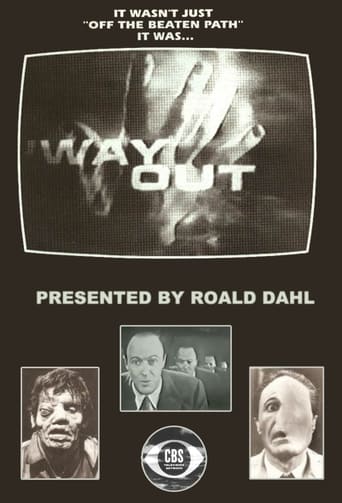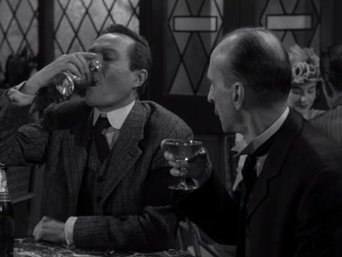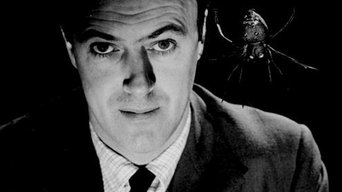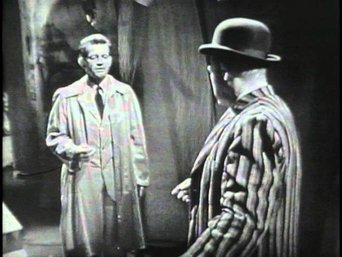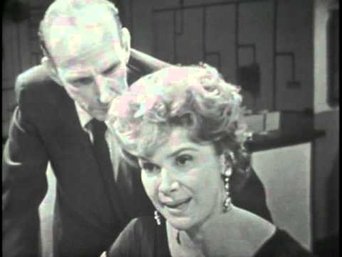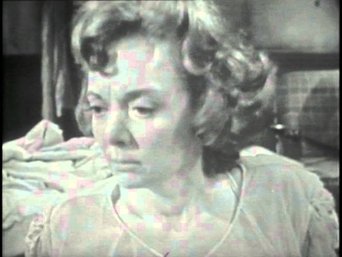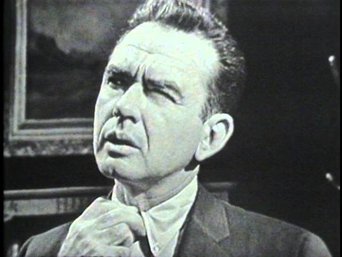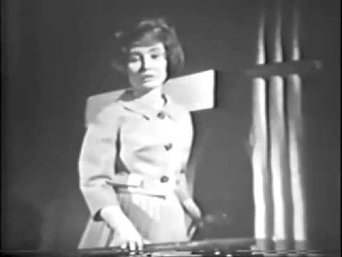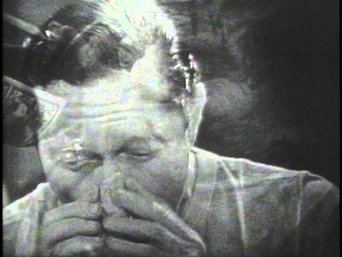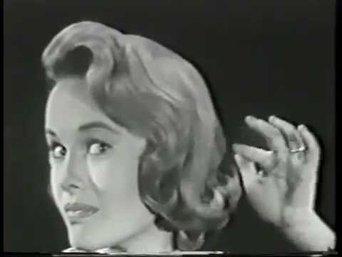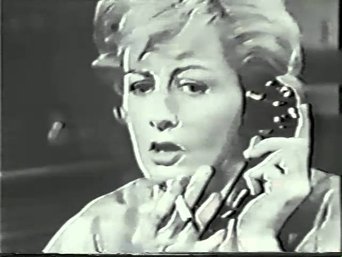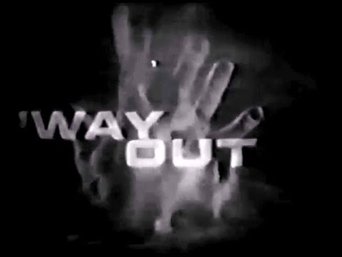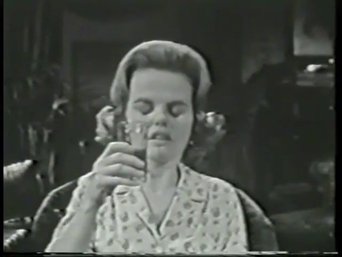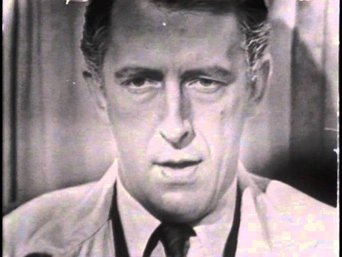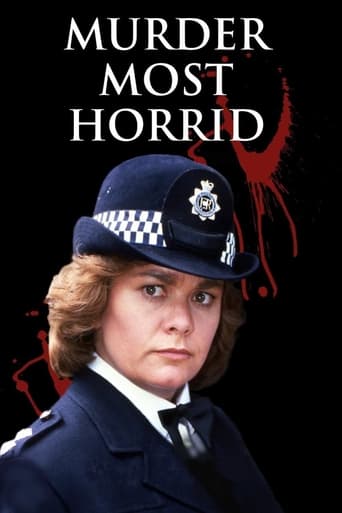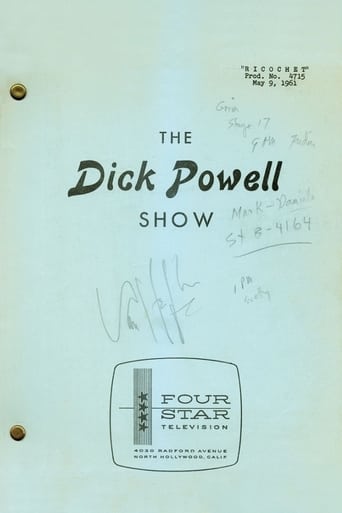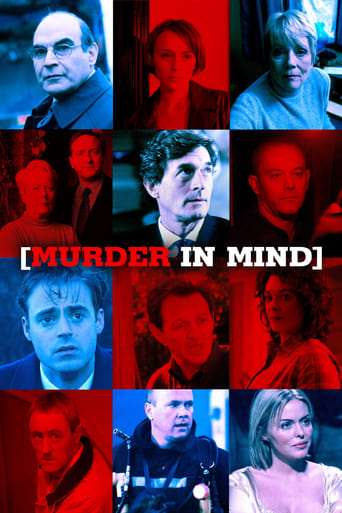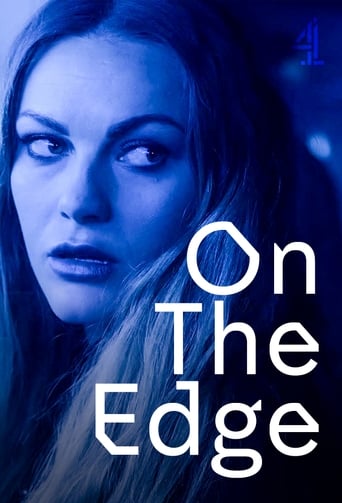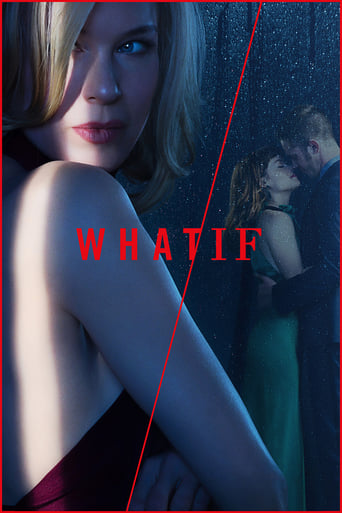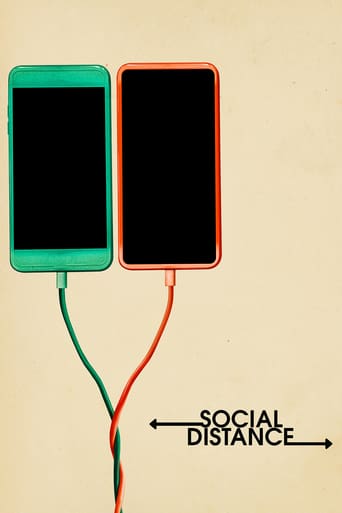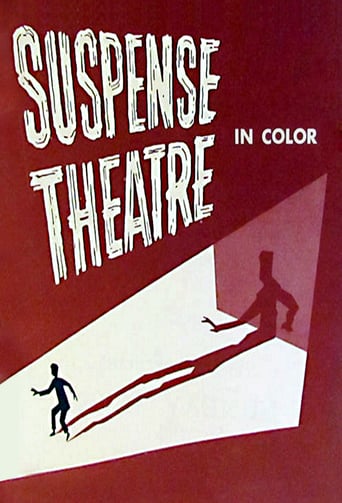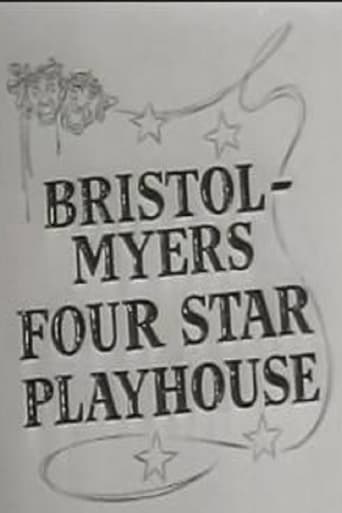Way Out Season 1

Way Out was a 1961 fantasy and science fiction television anthology series hosted by writer Roald Dahl. The macabre 25-minute shows were introduced by Dahl's dry delivery of a brief introductory monologue, sometimes explaining a method of murdering a spouse without getting caught. The taped series began because CBS suddenly needed a replacement for a Jackie Gleason talk show that network executives were about to cancel, and producer David Susskind contacted Dahl to help mount a show quickly. The series was paired by the network with the similar The Twilight Zone for Friday evening broadcasts, running from March through July 1961 at 9:30 p.m. Eastern time, under the primary sponsorship of Liggett & Myers. Writers included Philip H. Reisman, Jr. and Sumner Locke Elliott. The premiere episode, "William and Mary", adapted from a Roald Dahl short story, told of a wife getting revenge on her husband. In "Dissolve to Black", an actress cast as a murder victim at a television studio goes through a rehearsal, but the drama merges with reality as she finds herself trapped on the show's near-deserted set. Other dramas offered startling imagery: a snake slithering up a carpeted staircase inside a suburban home, a disembodied brain in a jar, a headless woman strapped to an electric chair, with a light bulb in place of her head and half of a man's face erased.
Watch NowWith 30 Day Free Trial!
Way Out
1961
Way Out was a 1961 fantasy and science fiction television anthology series hosted by writer Roald Dahl. The macabre 25-minute shows were introduced by Dahl's dry delivery of a brief introductory monologue, sometimes explaining a method of murdering a spouse without getting caught. The taped series began because CBS suddenly needed a replacement for a Jackie Gleason talk show that network executives were about to cancel, and producer David Susskind contacted Dahl to help mount a show quickly. The series was paired by the network with the similar The Twilight Zone for Friday evening broadcasts, running from March through July 1961 at 9:30 p.m. Eastern time, under the primary sponsorship of Liggett & Myers. Writers included Philip H. Reisman, Jr. and Sumner Locke Elliott. The premiere episode, "William and Mary", adapted from a Roald Dahl short story, told of a wife getting revenge on her husband. In "Dissolve to Black", an actress cast as a murder victim at a television studio goes through a rehearsal, but the drama merges with reality as she finds herself trapped on the show's near-deserted set. Other dramas offered startling imagery: a snake slithering up a carpeted staircase inside a suburban home, a disembodied brain in a jar, a headless woman strapped to an electric chair, with a light bulb in place of her head and half of a man's face erased.
Watch Trailer
With 30 Day Free Trial!
Way Out Season 1 Full Episode Guide
Harvey Cartwright is a timid little man with a shrew of a wife; he is an encyclopedia salesman. Since he can't see well with his new eyeglasses, he accidentally goes to the wrong address: the Jellifers had not asked about a free trial offer of encyclopedias. Their line is taxidermy, they keep stuffed animals-- like Mahatma, a stuffed viper. At home, nagging wife Stephanie harps that she was better off with her previous husband Stanley, before he died. Harvey only wishes to escape from his awful life-- whether at work or at home, he is miserable. Harvey finds out that his new eyeglasses have magical powers: by putting them on, he is reunited with the Jellifers at their place. The Jellifers tell him their stuffed animals can come back to life and kill people; Harvey offers them money to have Mahatma the viper kill his nagging wife Stephanie at 3:00 a.m. But at 3 o'clock in the morning, it is Stephanie who is wearing the magical eyeglasses. It seems she was friends with the Jellifer
Peter Pell is a photographer who has made an amazing discovery: a special chemical that not only retouches photos, but then magically changes the faces of the people in the photos. For example, Peter removes the scars on a portrait of a once-famous actress, making her beautiful again. Peter knows that his wife Louise is having an affair with his assistant Bill Fontaine. So Peter starts working on Louise's photo, using the magic retouching fluid, adding wrinkles until she looks very old. Peter, the whole time, has been working on his own photo, making himself look younger. But one night Louise discovers what he's up to in his studio; she splashes the bottle of the magic retouching fluid on Peter's photo -- erasing half the face on the photo, and half of his face! [A truly scary episode. It seems to draw some inspiration from the classic story: ""The Picture of Dorian Gray"".]
Meek Harold Potter is a bookkeeper with a nagging wife Edna, and no life. One night, he goes to a sideshow at a carnival. They show a guillotine, and appear to cut off a woman's head. The main attraction is Cassandra, a headless lady strapped into an electric chair; only the chair is not a method of execution, but the opposite-- 10,000 volts ""keep her alive."" Somehow, telepathically, the headless Cassandra pleads with Harold to stay. Later, the carnival closes for the night. But Harold comes back to see Cassandra night after night. Harold falls in love with Cassandra; he even promises to help her escape the carny life. He is convinced that she is a normal girl, and the ""headless"" routine is just a carny trick; he thinks the only reality is that she is strapped into the electric chair, being held a virtual prisoner. Late one night, Harold sneaks into the sideshow, and using some pliers he starts to cut the metal straps that hold Cassandra. Later, Edna comes looking for her miss
Dr. Ernest Lydecker just wants peace and quiet, and prefers to putter around in his laboratory. His nagging wife Bernice is a constant source of noise. Dr. Lydecker decides to make his wife the guinea pig for his latest experiment: using special sound waves, he has made mice and chimps docile, so he tries it out on his wife. It seems to work, Bernice becomes quiet and docile. But there is a side effect; now Bernice cannot stand loud noises. She destroys a ringing phone, a chiming clock, a barking dog, and finally a loud neighbor. Dr. Lydecker figures he must reverse the experiment with an antidote-like sound treatment. But Bernice does not want to revert. She is happy and docile, unless some loud noises irritate her. Dr. Lydecker keeps ordering her, in a loud voice, to get the treatment-- and Bernice destroys anything that irritates her. [a typical ""married couple hate each other"" episode, only here the twist is that the hubby turned his wife into a killer.]
A woman wakes up one morning in a strange bed; beside her is a stranger. He swears he's her husband Bill Clayton, and her name is Norma. She gets hysterical, says her name is not Norma; she must be having another nightmare, and she starts to pack The Overnight Case, which is always a part of this bad dream. She is taken to a psychiatrist. She meets with Dr. Sandham, but when she sees the man she knows is her husband, he doesn't recognize her. Again, she grabs the overnight case and starts to run. One morning, she finally wakens in her own bed. But the man who says he is her husband is a stranger. She grabs her overnight case to run again, swearing she must still be dreaming. [this ""loss of identity"" was used in a few Twilight Zone episodes, such as ""A World of Difference"" (3/11/1960) a year before this ""Way Out"" episode, and ""Person or Persons Unknown"" (3/23/1962) broadcast a year after this episode.]
This episode starts out with the Narrator saying, ""Most men want to kill their wives."" (did I mention ""Way Out"" is a misogynistic series?) And we meet yet another married couple that can't stand each other: George and Hazel Atterbury. They attend a funeral for one of George's coworkers. That night, TV-addict Hazel is talking to her hubby, telling him all about her favorite TV shows, for example, ""The one where they're all gangsters, except the hero... it's very authentic, it's based on official files."" (sounds like ""The Untouchables"".) George goes for a walk instead. George walks to the Petard mortuary that handled the funeral. George decides to kill his wife. Just as we hear his thoughts-- ""What do you do with the body?""-- Mr. Petard puts a sign in the window: ""Let us dispose of the body."" Inside, George talks to Mr. Petard, who is an eloquent elderly gentleman who has a giant, bald-headed assistant named Charon* (think: Tor Johnson). When George finds out they killed Mrs. H
Bonnie Draco's first acting job is a spooky one: she goes to work at a TV studio at night. Bonnie rehearses a scene with Paul, Harry and a murderer. But George the director tells Bonnie she must stay after hours to rehearse more. Everything dissolves to black. Bonnie now witnesses a real killing with a different Paul, Harry and murderer. Now, the murderer pursues Bonnie, and there is another dissolve to black. Next morning, when the cast and crew arrive, there is no sign of Bonnie.
Handsome actor Michael Drake has been cast as Quasimodo in a production of ""The Hunchback of Notre Dame."" Drake goes slumming, and at a flophouse picks up a bum with an ugly face; Drake offers him $50 to come to his dressing room, so Drake can copy his ugly face via make-up. Once he has no further need of the bum, Drake dismisses him. Drake is also rude to his costar and girlfriend, Rita Singer. The play is a hit, but there's a problem: after the show, the make-up won't come off! Drake tells Rita, but since he has been so mean to her lately, she just laughs at his problem. Drake desperately retraces his steps, until he finds the bum. The bum now has Drake's handsome face. Drake offers any amount of money to switch faces with him again, but he's too late-- the bum is dead. Drake is now stuck with a Quasimodo-like face for the rest of his life.
Mr. Rana (latin for ""Frog"") is a strange man who has moved into the neighborhood. He gets pestered by a rascally kid named Jeremy Keeler (think: ""Dennis the Menace"") who does stuff like letting pet dogs loose, so he can get a reward from their owners for their return. Mr. Rana raises frogs, and offers Jeremy 25 cents per jar with flies, so he can feed the frogs; Jeremy balks at first, but after Mr. Rana tells him how much mischievous fun he will have knocking over peoples' garbage cans to collect the flies, Jeremy accepts. Jeremy, meanwhile, sends Mr. Tench over to Rana's house to get his dog back. Mr. Rana slips him a potion that turns Tench into a frog. Next day, Mrs. Tench is filing a missing person's report. Sergeant McGoogin reads his notes, ""Hair color: yellow. Eyes narrow and close together. Weak chin; drools."" He asks, ""Is that your dog or your husband?"" Mrs. Tench quips, ""Both."" Later, a large frog chases Mrs. Tench over to Mr. Rana's place; he slips her a potion, an
Freda Mansfield (an American, age 38) is checking out of a London hotel; she is planning on eloping with her British lover George Frobisher (age 43, who already has a wife, Monica, and kids) and they are going to New York City together. But Freda keeps getting mysterious phone calls from some strange woman, who says that Freda will never run away with George-- Freda is going with her. The strange woman keeps phoning Freda; the caller says her name is Mrs. Rose Thorn, and adds that she is coming up to her hotel room to see her. Freda sees what might be a ghost (dressed in 1912 clothing), and goes hysterical, and faints. Later, a doctor examines Freda's body-- he tells George that she died of pneumonia-like symptoms: both lungs are filled with water, sort of like drowning. George says that his mother was Mrs. Rose Thorn, who died of drowning nearly half a century ago-- she was a passenger aboard the doomed Titanic. (He was later adopted by the Frobisher family; he had never mentione
The Button referred to in the title is the button that will launch the nuclear missiles in a war. Captain Stone has the key which unlocks the control panel, giving access to the Button. Captain Stone also has nightmares about the nuclear holocaust that would result, should he ever have to push the Button; in his nightmare, his men hold him while one of the sergeants takes his key, and presses the Button, unleashing the nuclear missiles. Captain Stone wakes up, relieved it was all a bad dream. But just then, the exact same men that were in his nightmare show up-- including the sergeant who took his key and pushes the Button. Was it a nightmare, or a vision of what was to come?
Harriet, the older sister, is immaculately neat; Louise, the younger sister, is a slob. (think: ""The Odd Couple"".) They live together in a cliff-house in Maine. Not only does the domineering Harriet impose her tidy housecleaning habits on Louise, she tries to run her life too-- Harriet ""forbids"" Louise to date Paul Marchand. Possessive Harriet tells Louise she doesn't need men-- after all, they are sisters and will have each other forever. One day, Louise lets Harriet fall off the cliff. Now Louise can do as she likes, and date Paul; (or so she thinks). At night, a woman like Harriet goes around compulsively doing housecleaning. One day, Paul comes to the front door, asking to see Louise. Even though Louise answers the intercom, it is in Harriet's voice that she tells Paul to go away. Louise has become her dead sister. [in the character of Louise-- who adopted the habits of the person she killed-- I see a bit of Norman Bates, from Alfred Hitchcock's ""Psycho"" (1960).]
John Ventry and Mr. Bayle were Navy buddies; after they got out, they went into business together. Although they were pals, John Ventry wasn't much good at business; in fact, his gambling debts-- which he charged to their company-- almost forces them into bankruptcy. Bayle winds up shooting Ventry, and leaving a phony suicide note next to the body. But Bayle is haunted by Ventry. Bayle is in the top-story office one night when he starts hearing eerie noises and voices; Bayle tries to escape by taking the elevator down, but it plunges to the basement. When the elevator door opens, Bayle is greeted by his dead buddy John Ventry. [the ending is vaguely reminiscent of the Famous Ghost Story, about the personification of Death saying ""There's room for one more"" to a person about to board the elevator-- just before the elevator crashes. It was the theme of the Twilight Zone episode ""Twenty-Two"" which was broadcast Feb. 10, 1961.]
William Pearl gets the bad news from his doctor: he only has a month to live. Dr. Landy says he can keep William's brain alive in a glass jar, after his body is dead. William never got along with his wife Mary; he was a cheapskate and was mean to her. When William dies, Mary is at home drinking and dancing. William's brain (and the attached eyeball) are coming home to Mary. But William's days of mistreating his wife are over; now she has the upper hand. To prove her point, she blows some cigarette smoke into the brain jar, making William's eyeball squint. [note: ""William and Mary"" is the name of a famous college-- the names kind of go together.] [trivia: perhaps this episode provided inspiration for the movie ""The Brain That Wouldn't Die"" (1962).]
Free Trial Channels
Seasons


